
Cleveringa Professor: ‘Individuals make history’
Through each individual decision, however small, people make history. This is what historian Katja Happe said in the Cleveringa Lecture on 26 November. She illustrated this with individual reactions to the persecution of Jews during the Second World War.
‘It is ultimately always individuals who sign laws, write letters or give speeches,’ said German historian Katja Happe from the lectern in the Academy Building, in the same place as where, in 1940, Professor Rudolph Cleveringa voiced his protest against the dismissal of his Jewish colleagues. ‘Neither states nor government systems can operate autonomously because they always consist of individual people. And if these people express their opinion, they thus help create and change history.’
In her speech, Happe argued for listening to people, studying their attitudes and actions, and researching their backgrounds, ‘when they speak and act in their own times.’ She herself has done so by listening to ‘normal’ Dutch citizens who spoke out – however modestly – against the persecution of Jews. ‘They left marks that might easily be overlooked. But ultimately, history consists of the combination of all the marks that have been left behind.’
About Katja Happe
Katja Happe (1970) studied German and history in Siegen (Germany) and history in Groningen. She worked as a guest researcher at the Netherlands Institute for War, Holocaust and Genocide Studies (NIOD) and was an academic advisor at Germanisches Nationalmuseum in Nuremberg. At present, she is the director of Ladelund memorial site in the northern German state of Schleswig-Holstein.
Aryan Declaration
In her speech, Happe took her audience back to the summer of 1940. The Dutch army had surrendered but a few months ago, and the German army had begun to introduce the first discriminatory measures. At the end of the summer, Dutch civil servants, teachers and scholars were told to sign the Aryan Declaration, in which they had to state whether they were Jewish. If they did not, they would be dismissed.

The secretaries-general of the government ministries – at that point the highest officials in the Netherlands – decided to respect the wishes of the occupier because they thought this was ‘a temporary measure.’ Nor did the Supreme Court protest against the declaration. Around 200,000 Dutch citizens ultimately filled in the declaration, out of fear or because they thought the persecution of the Jews ‘wouldn’t take off.’ They thus provided the Germans with valuable information for the final solution to ‘the Jewish question.’
Signs of a conscience
However, not all Dutch people willingly obeyed their new rulers. The Aryan Declaration was a disgrace in the opinion of Amsterdam pastor Jan Koopmans. And although ‘this battle’ had already been lost, much could still be achieved if the Dutch people stayed strong, he wrote in an underground pamphlet in November 1940. ‘What matters is that in these times the Dutch people are strong; that they show they have a conscience; that they are not willing to allow the whole difference between good and evil to be obscured.’

Did Koopmans’s protest help? No, one could conclude. At the end of November, no fewer than 2,500 Jewish civil servants, teachers and scholars had been dismissed, including several staff members of Leiden University. And five years later, there were around six million fewer Jews in Europe than before. However, these individual histories are important, says Happe. History consists of individual decisions, however small.
Make history
Happe ended her speech with an appeal to those present. ‘Form an opinion about the events going on around you. Take decisions – make history! And be aware that this is what you are doing.’ Or, as Koopmans wrote in his leaflet, five years before he was killed by a stray German bullet: ‘Is a good conscience of no value to you, then? If you make haste, gentlemen, much can still be attained.’
Text: Merijn van Nuland
Photos: Marc de Haan
Mail the editors
-
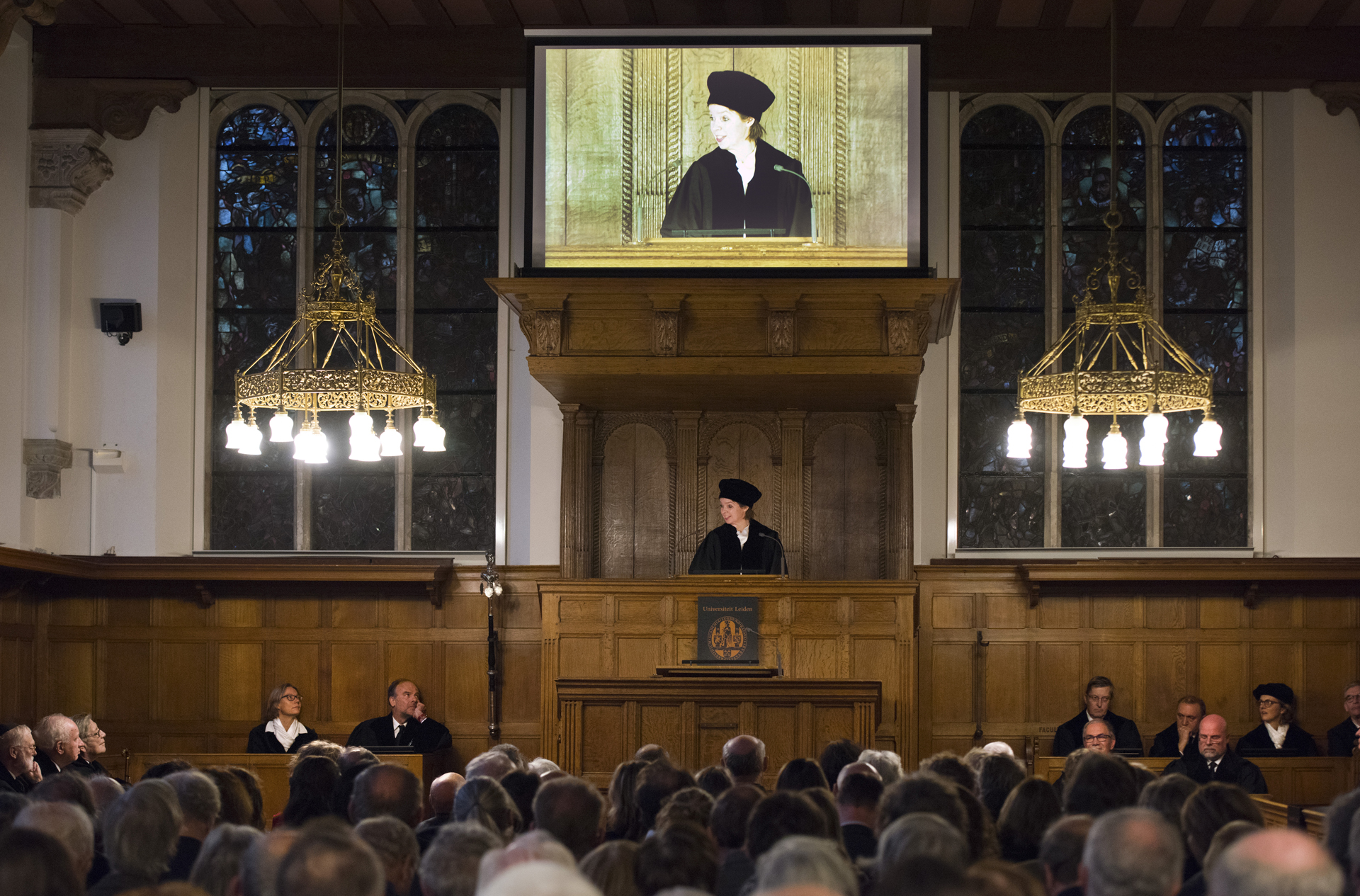
-
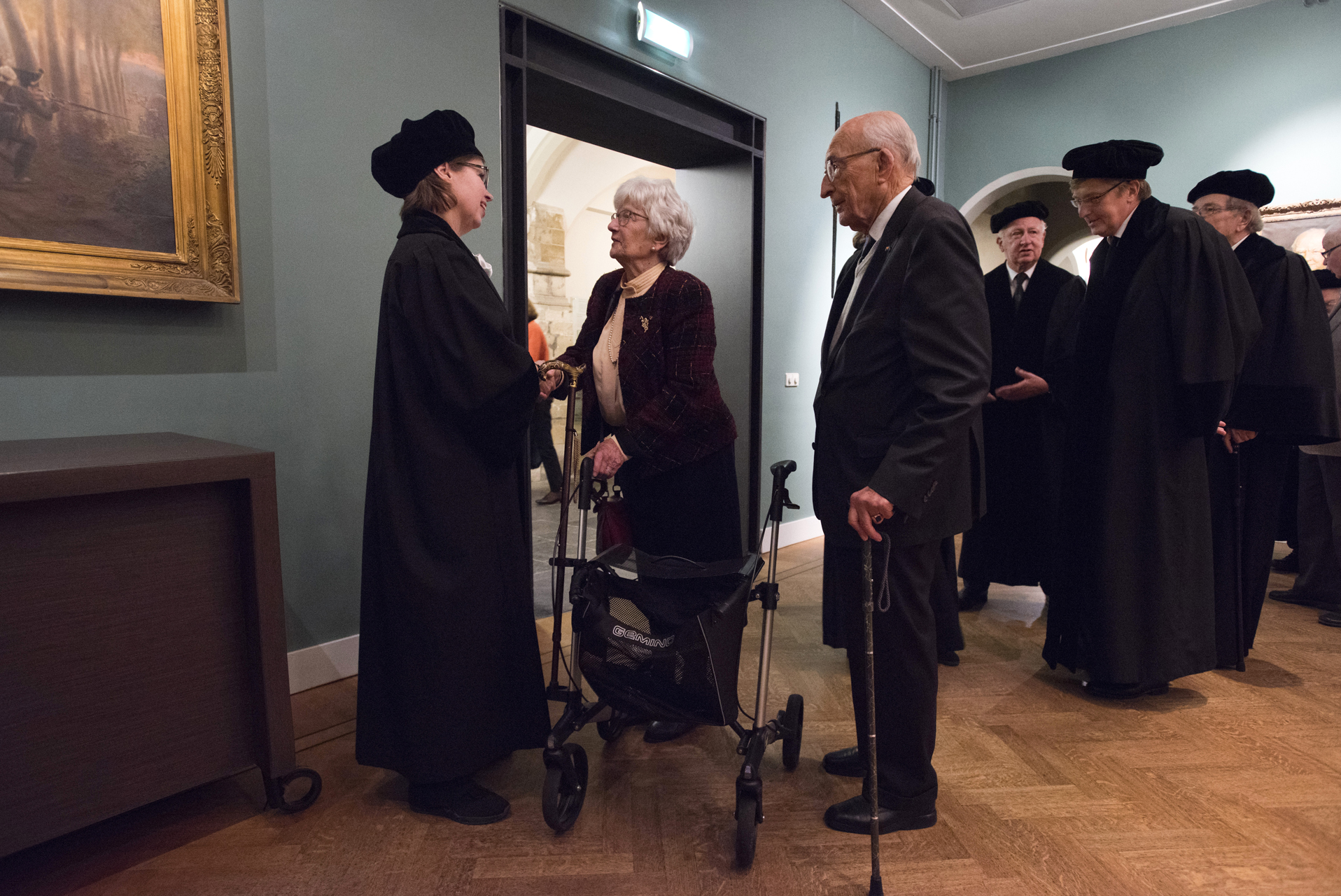
Hiltje Cleveringa (the daughter of Rudolph Cleveringa) and her husband congratulate Katja Happe. -
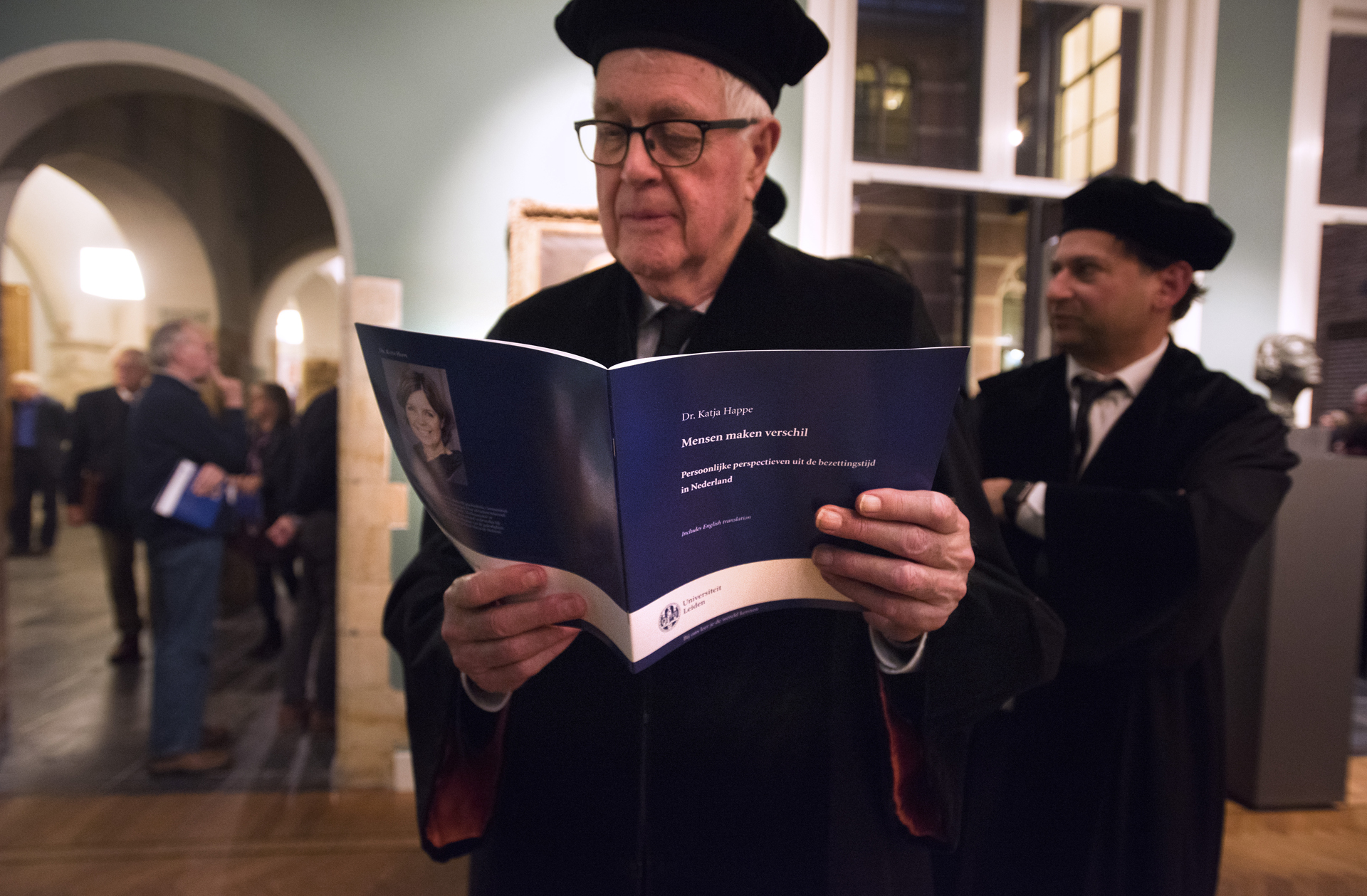
Various Leiden historians such as Jan Bank attended the lecture. -
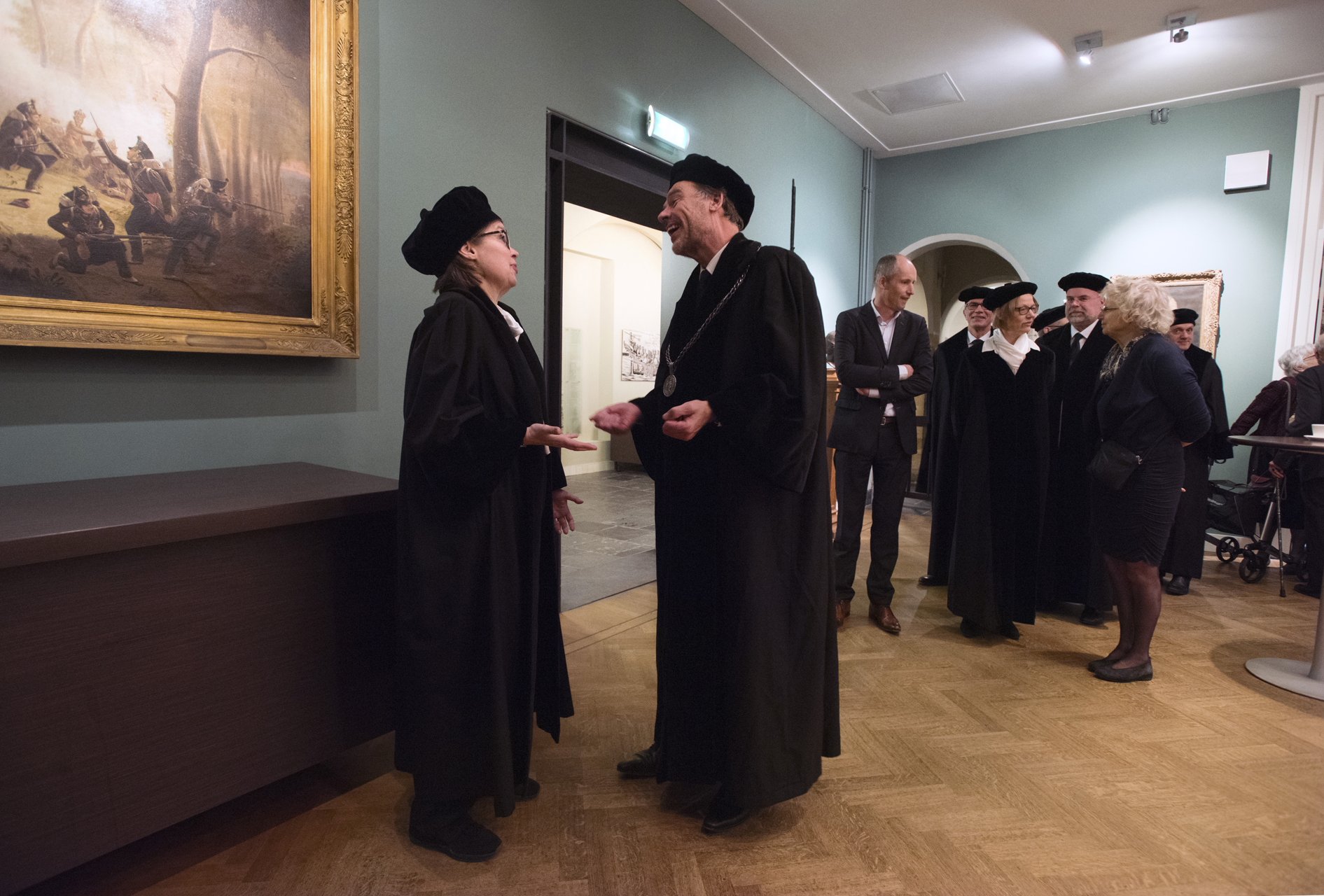
Rector Magnificus Carel Stolker congratulates Happe. -
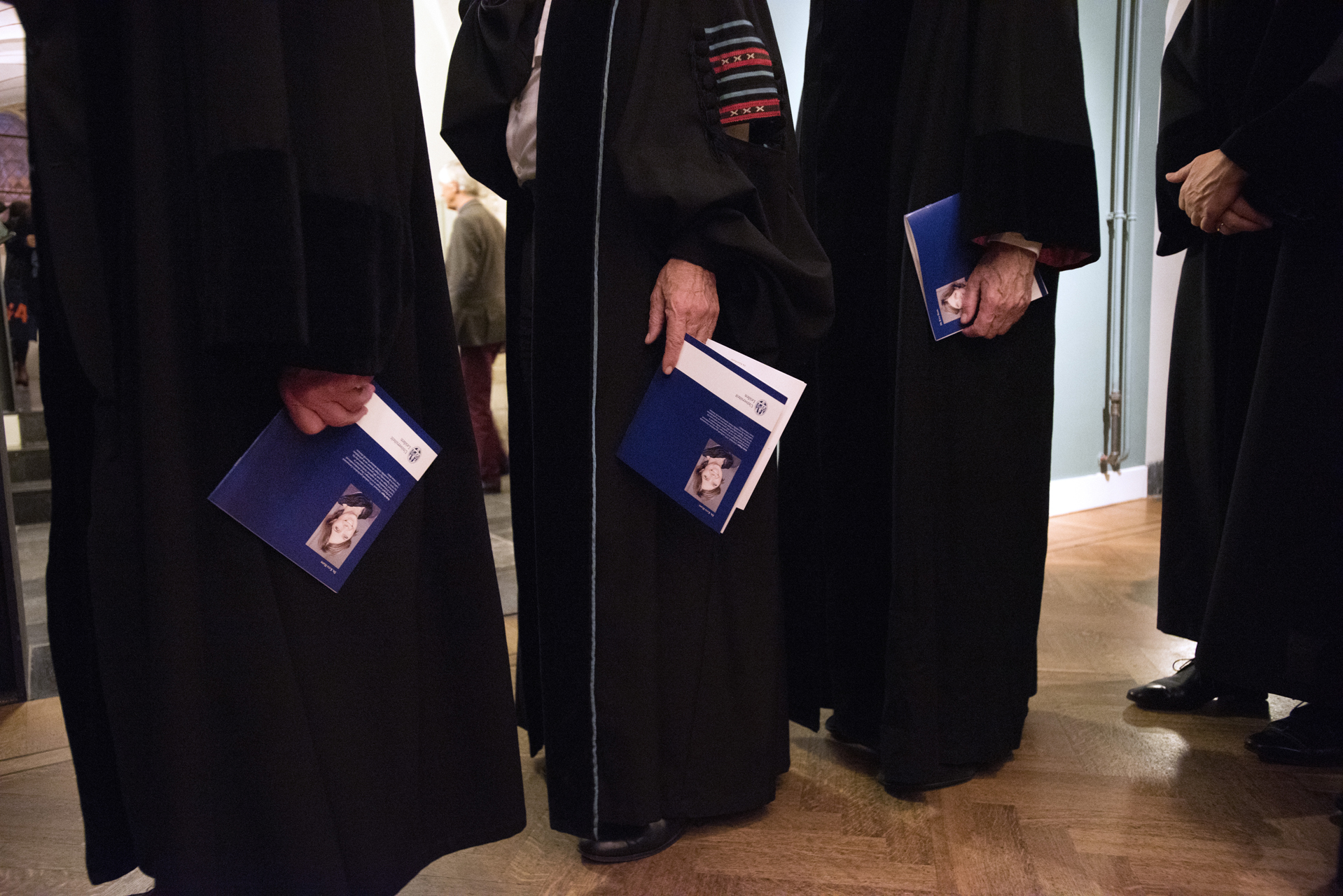
-
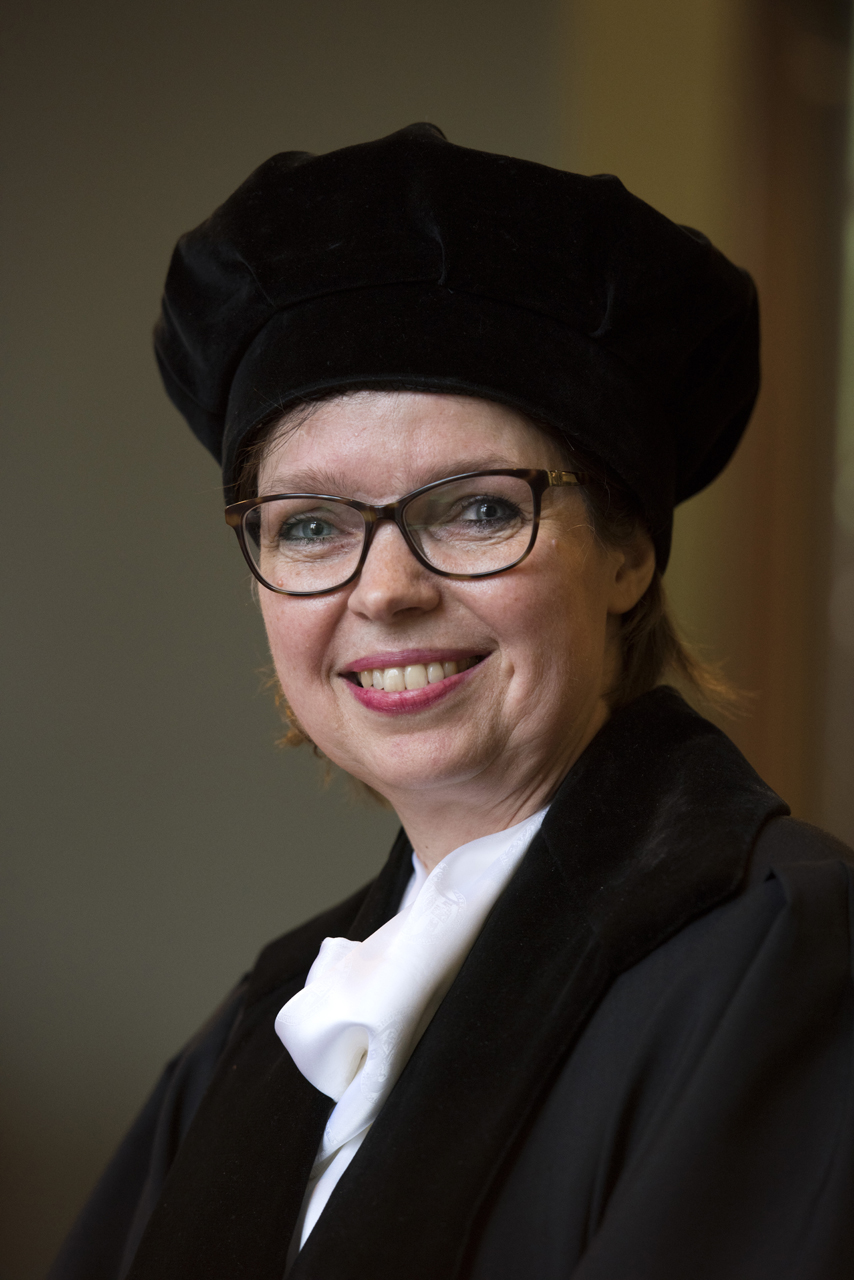
Happe might give a lecture to students next year.
